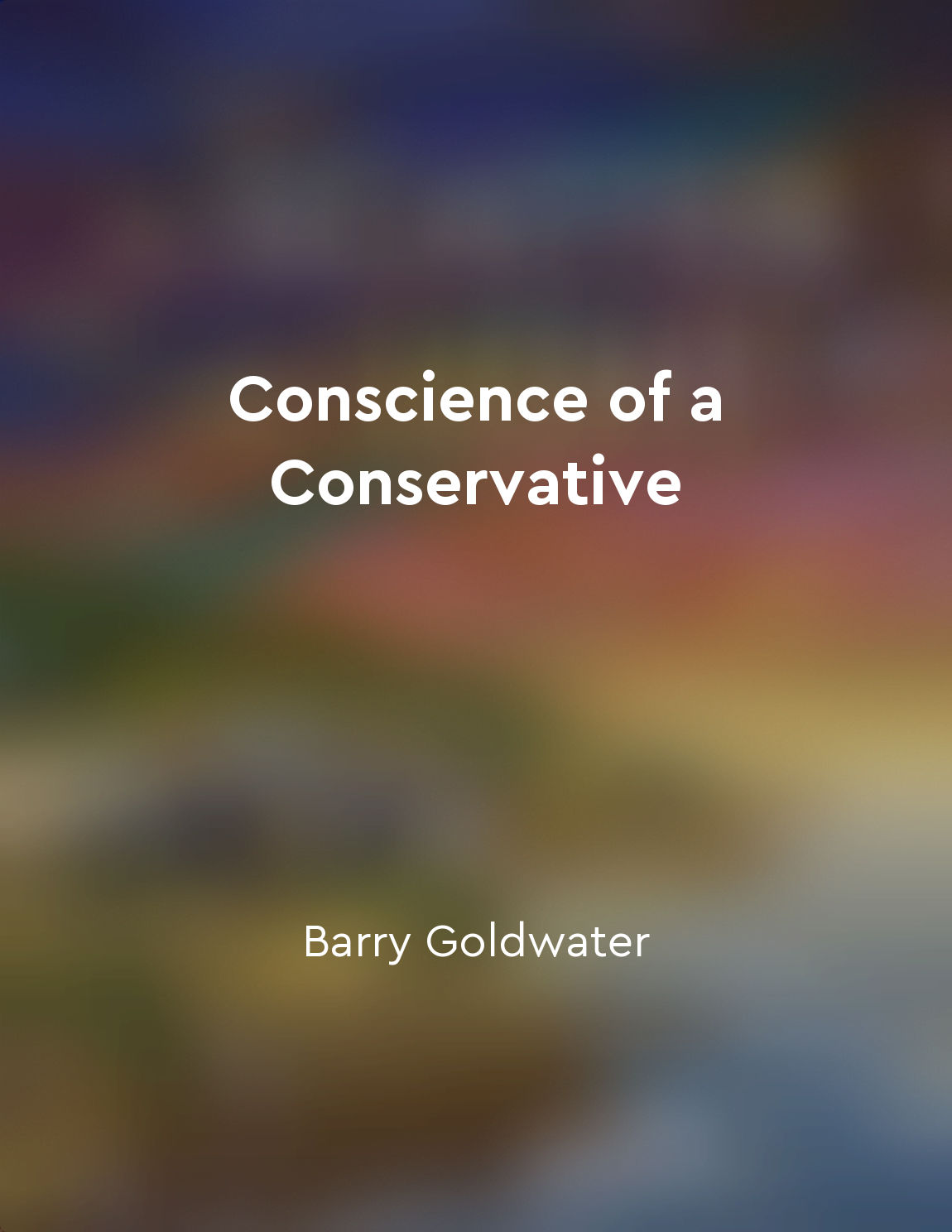The line between moral righteousness and tyranny is thin from "summary" of Dictatorship of Virtue by Richard Bernstein
In our pursuit of moral righteousness, we must be cautious not to overstep the boundaries and slide into tyranny. The desire to do good and uphold moral values can sometimes blind us to the potential for abuse of power. When we become too zealous in our beliefs, we may inadvertently infringe upon the rights and freedoms of others. This slippery slope from righteousness to tyranny is a real danger that we must be constantly vigilant against. History is replete with examples of individuals and groups who started with noble intentions but ended up becoming oppressors in the name of virtue. The road to tyranny is often paved with good intentions, as individuals convince themselves that their actions are justified in the service of a higher moral purpose. This justification can lead to a dangerous sense of self-righteousness, where one believes they are beyond reproach and can do no wrong. The thin line between moral righteousness and tyranny is easily blurred, especially in times of crisis or upheaval. When faced with uncertainty or threat, individuals may feel compelled to take drastic measures in the name of morality. However, these measures can quickly escalate into authoritarianism if left unchecked. It is essential to maintain a sense of perspective and humility in our pursuit of virtue, recognizing that the path to tyranny is often paved with good intentions. We must also be mindful of the impact of our actions on others, particularly those who may not share our beliefs or values. The imposition of moral standards on a diverse society can easily descend into coercion and oppression if not approached with sensitivity and respect for individual rights. The true test of our commitment to righteousness lies in our ability to uphold moral values without resorting to tyranny in the process.- The line between moral righteousness and tyranny is indeed thin, requiring constant vigilance and self-reflection to navigate successfully. By maintaining humility, perspective, and respect for individual rights, we can strive to uphold our moral values without succumbing to the temptations of authoritarianism. It is a delicate balance that requires careful consideration and a commitment to justice and freedom for all.
Similar Posts
Power can enhance creativity
Power, contrary to what many believe, can actually enhance creativity. When individuals are in positions of power, they often f...

Welfare programs should encourage selfreliance
The idea that welfare programs should encourage self-reliance is a fundamental principle that must guide our approach to social...
He discusses the importance of political associations in a democratic society
In a democratic society, the significance of political associations cannot be understated. These organizations serve as a cruci...
Overcoming suffering leads to power
The idea that the act of overcoming suffering can lead to power is a concept deeply explored in 'The Genealogy of Morals'. Niet...
Power can be wielded responsibly for the greater good
The idea that power can be wielded responsibly for the greater good is a central theme in Acting with Power. Many people view p...
Monarchy is outdated and oppressive
In considering the concept of monarchy, it becomes clear that such a system is not only outdated but also inherently oppressive...

The impartial spectator serves as a moral compass
In our pursuit of moral goodness, we often rely on an inner voice that acts as a guide, leading us towards what is right and ju...

